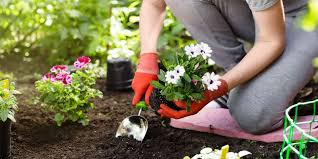Sleep, a precious commodity in our fast-paced world, has become increasingly elusive for many adults. In the era of digital distractions and non-stop connectivity, the consequences of sleep deprivation are dire, with impacts ranging from physical health issues to cognitive impairments. However, a recent study published in the Journal of Affective Disorders suggests that the remedy for sleepless nights might lie not in a pill, but in the garden.
The study, led by Xiang Gao, a dean and distinguished professor at Fudan University, sheds light on the therapeutic potential of gardening in improving sleep quality among adults. Drawing on data from the Behavioral Risk Factor Surveillance System (BRFSS), which annually surveys over 62,000 adults across the United States, researchers explored the relationship between gardening activities and sleep patterns.
Their findings revealed a compelling correlation: individuals who engaged in gardening reported significantly fewer sleep complaints compared to non-exercisers and those involved in other forms of physical activity. Moreover, the study identified a dose-dependent relationship, indicating that the more time spent gardening, the greater the improvement in sleep quality.
Unraveling the Garden-Sleep Connection
While the study underscores the positive influence of gardening on sleep, researchers are delving deeper into the mechanisms behind this phenomenon. Several factors are being investigated:
Physical Activity: Gardening involves a range of movements that constitute exercise, promoting cardiovascular health and muscle strength. This physical exertion contributes to better sleep by facilitating deeper and more restful rest.
Sunlight Exposure: Spending time outdoors while gardening exposes individuals to natural sunlight, which helps regulate the body’s circadian rhythm. A balanced circadian rhythm enhances the production of melatonin, the hormone crucial for inducing sleep.
Stress Reduction: The calming nature of gardening activities can reduce cortisol levels, thereby alleviating stress and anxiety, common barriers to quality sleep.
Mindfulness and Connection with Nature: Engaging with the natural environment fosters mindfulness and reduces rumination, promoting a peaceful state of mind conducive to sleep.
Sense of Accomplishment: The tangible outcomes of gardening, such as the growth of plants or the harvest of produce, instill a sense of achievement and satisfaction, contributing to a positive bedtime mindset.
Cultivating Better Sleep: Tips from the Garden
For those inspired to harness the sleep-enhancing benefits of gardening, here are some practical tips:
- Select Relaxing Plants: Choose fragrant herbs like lavender, chamomile, or jasmine known for their calming properties.
- Create a Tranquil Environment: Incorporate elements such as wind chimes, soft lighting, and comfortable seating to enhance relaxation.
- Practice Mindful Gardening: Focus on the present moment, immersing yourself in the sensory experience of gardening.
- Keep a Garden Journal: Reflect on your gardening experiences, noting observations and feelings to promote relaxation and stress relief.
Beyond Sleep: The Holistic Benefits of Gardening
The study’s findings underscore the multifaceted advantages of gardening, extending beyond sleep improvement to potential protection against cardiovascular disease and cognitive decline. As researchers continue to explore the therapeutic potential of gardening, it serves as a poignant reminder of the healing power inherent in nature.
Whether you’re a seasoned gardener or a novice, cultivating a garden may not only yield beautiful blooms and bountiful harvests but also nurture a healthier mind and body, ensuring restful nights and vibrant days.
Source
The study, “Gardening significantly improves sleep quality in adults,” is published in the Journal of Affective Disorders.












